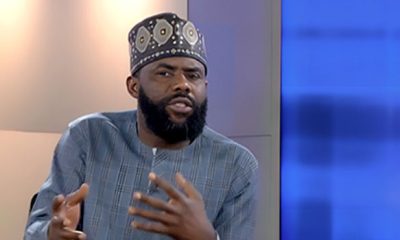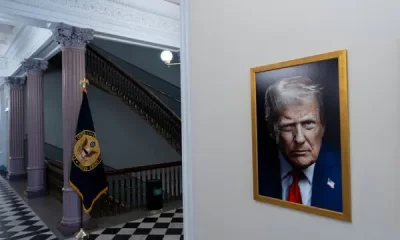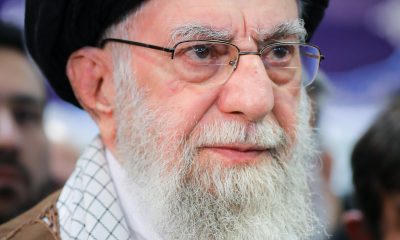News
Iran would be in danger if nuclear talks with US fail – Trump
On Monday night, April 7, 2025, U.S. President Donald Trump announced that his administration is engaging in direct talks with Iran regarding its nuclear program, with a high-level meeting scheduled for Saturday.
Speaking alongside Israeli Prime Minister Benjamin Netanyahu in the Oval Office, Trump emphasized the preference for a diplomatic solution, stating, “We’re having direct talks with Iran, and they’ve started. It’ll go on Saturday. We have a very big meeting, and we’ll see what can happen. And I think everybody agrees that doing a deal would be preferable.”
Netanyahu, who traveled from Budapest to Washington, D.C., at Trump’s invitation, expressed cautious support for the initiative. He noted that if diplomacy could fully eliminate Iran’s nuclear program, it would be “a good thing,” but stressed the necessity of preventing Iran from obtaining nuclear weapons by any means necessary.
However, Iran quickly refuted Trump’s assertion of direct talks. A senior Iranian official stated that any negotiations would be indirect, with Oman acting as an intermediary. Iranian Foreign Minister Abbas Araghchi confirmed on social media that “Iran and the United States will meet in Oman on Saturday for indirect high-level talks,” adding, “It is as much an opportunity as it is a test. The ball is in America’s court.”
Oman, known for maintaining good relations with both the U.S. and Iran, has historically served as a channel for communication between the two nations. Despite the differing accounts of the negotiation format, both sides appear to be moving toward discussions aimed at addressing Iran’s nuclear ambitions.
President Trump warned that failure to reach an agreement could lead to severe consequences for Iran. He stated, “I think if the talks aren’t successful with Iran, I think Iran is going to be in great danger. And I hate to say it, great danger because they can’t have a nuclear weapon.”
These developments come amid heightened tensions in the Middle East, with the U.S. recently increasing its military presence in the region. The outcome of the upcoming talks could significantly impact the geopolitical landscape and efforts to prevent nuclear proliferation in the area.























